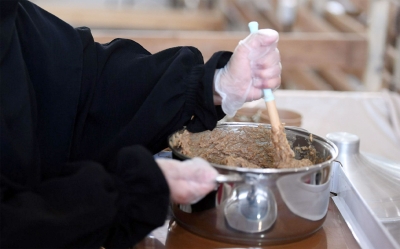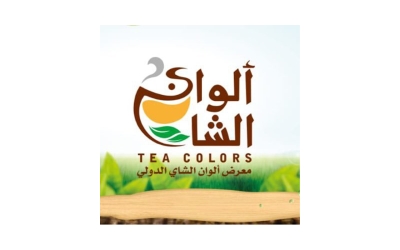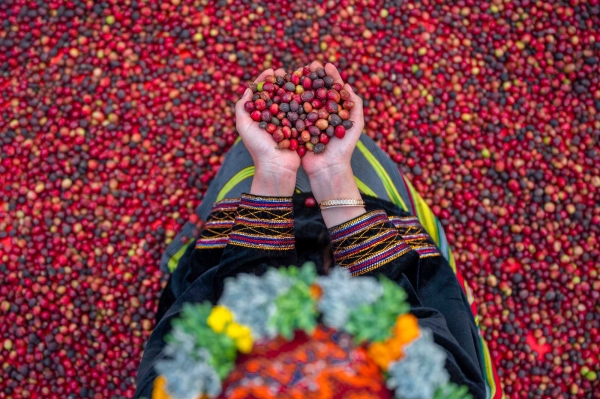
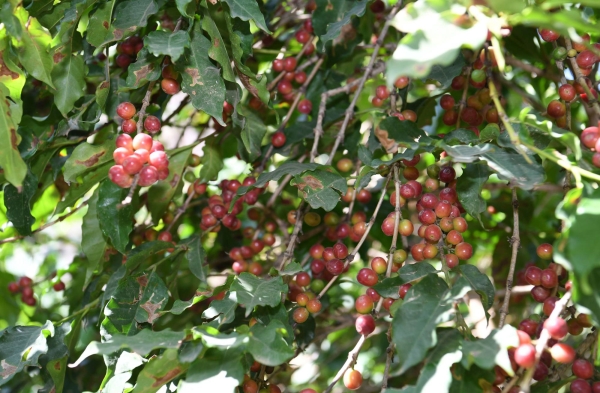
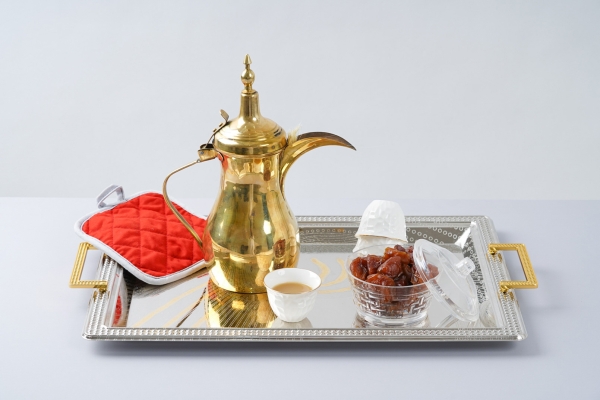
Saudi Coffee is a fundamental element of hospitality in the Kingdom of Saudi Arabia, deeply rooted in its culture and longstanding traditions as part of its lifestyle. It is one of the initial steps in the official hospitality protocol for receiving foreign delegations and heads of state in the Kingdom. Coffee cultivation in the Kingdom is recognized as a traditional profession with roots dating back approximately three hundred years.
Saudi coffee is one of the most popular forms of coffee in the Middle East and the Arabian Peninsula, particularly. Arabic coffee was registered in 2015 as a common element among the Kingdom and several Gulf countries on the Representative List of Intangible Cultural Heritage, registered with UNESCO World Heritage.
History of Saudi coffee
Historical records do not provide confirmed accounts of the original habitat of the coffee tree, but studies suggest that Ethiopia was its first habitat. Then it moved to Yemen, and from Yemen to Makkah al-Mukarramah in 1500, and from there to al-Madinah al-Munawwarah.
Naming Saudi Coffee
The Saudi Ministry of Culture in 2022 approved the designation of Arab coffee as 'Saudi Coffee' for all restaurants and cafes in the Kingdom, in collaboration with the Ministry of Commerce, as part of the 'Year of Saudi Coffee 2022' initiative. Celebrating it, the initiative aimed to showcase the rich cultural diversity in the methods of preparing Saudi coffee across the Kingdom's provinces.
Registration of Saudi coffee in UNESCO
The United Nations Educational, Scientific and Cultural Organization (UNESCO) included the Arab coffee traditions as a common element among the Kingdom and several Gulf countries, including the United Arab Emirates, Qatar, and Oman, on the Representative List of the Intangible Cultural Heritage of Humanity in 2015.
Saudi coffee
Coffee cultivation in the Kingdom is known as an inherited profession, dating back approximately three hundred years, aimed at meeting the self-sufficiency needs of farmers. The Kingdom ranks among the highest consumers of coffee, exceeding eighty thousand t annually, with Saudis spending over SAR1 billion on coffee consumption.
Coffee farms in the Kingdom
Coffee is a commercial crop that contributes to improving the income of residents in the mountainous regions of the south of the Kingdom. Its cultivation is concentrated within three provinces: Aseer, al-Bahah, and Jazan. The latter comprises 2,036 coffee farms covering mountainous governorates, including al-Da'ir, Fayfa, al-'Idabi, Hurub, ar-Rayth, and al-Aridah. According to the Jazan Mountainous Areas Development and Reconstruction Authority, 1,060 farmers work in coffee farms in the province, and the province is covered by 384,214 trees, with an average annual production of 922 t. Aseer Province ranks second in coffee production, with approximately three hundred farms dedicated to coffee cultivation. These farms comprise forty thousand trees producing 333 t annually, including 250 t of green coffee and eighty-three t of dry processed coffee. Meanwhile, al-Bahah Province ranks third in coffee production, with around 250 farms covering 22,000 trees and producing 108 t annually. The annual net coffee production of the Kingdom is currently estimated to be around 1.810 t. This production is yielded by four hundred thousand trees across 2,535 farms.
Types of Saudi coffee
The Kingdom is known for cultivating several varieties of coffee, including:
Saudi Khawlani coffee: It is one of the most expensive and rare types of coffee in the world, distinguished by its aroma and the oily layer that envelops it. It is named after the tribe (Khawlan Bin Amer) that inhabited the mountains stretching between the Kingdom and Yemen. It is cultivated in the mountainous areas of Jazan province due to the suitable climatic and geographical conditions for its cultivation.
Harrar coffee: Its original homeland is Ethiopia, and it has been cultivated in the Kingdom in its three varieties: (Longberry, Shortberry, and Mocha).
Coffee processing methods in the Kingdom
Drying: It is one of the oldest methods of coffee processing, starting immediately after harvesting. The beans are dried in open spaces exposed to sunlight for a period ranging from four to six weeks. This method contributes to enhancing the sweetness of the coffee and making the coffee's body heavier, while also extending the coffee's shelf life.
Washing: In this process, coffee beans pass through a machine that removes the outer husk while retaining the sticky substance. Then, they are soaked to remove this stickiness before undergoing the drying method. The beans are spread out in sunny areas to dry over several days, depending on the temperature of the sun. In this method, the coffee's body becomes lighter, and the acidity level of the coffee increases.
Honey Process: It combines drying and washing methods. Coffee beans are handpicked, sorted, and cleaned without removing the mucilage. This process results in a medium-bodied coffee with balanced flavor notes, blending acidity with sweetness.
Cultural connotations of Saudi coffee
Saudi coffee is the first step in the official hospitality ceremonies when receiving foreign delegations and heads of state in the Kingdom. It is one of the most popular forms of coffee in the Middle East and the Arabian Peninsula, particularly.
In 2022, the year was designated as the Year of Saudi Coffee, serving as a steadfast acknowledgment of its status as a cultural symbol of the Kingdom. The Saudi coffee serving method reflects several cultural connotations recognized within the social context of the Kingdom, extending to some Gulf countries as well. For instance, the first cup of coffee, which the host drinks before his guest, signifies the assurance of the coffee's quality and is known as (al-Haif) cup. As for the first cup that the guest receives from the host, the guest is obliged to drink it unless they have a specific request they wish the host to fulfill for them. This cup is called (al-Daif) cup. The second cup, which the guest receives from the host, is weaker in strength according to Arab customs, and it is called (al-Kaif) cup. Drinking the third cup signifies a commitment between the guest and the host to cooperate in times of difficulty, and it is called (al-Saif) cup. Among the old cups is (al-Fares) cup, in which coffee is poured into a cup raised on heads after gathering the youth of the tribe. Then, the tribe's sheikh asks the attendees who are willing to take revenge on someone. One of the knights then drinks from the cup as a declaration of accepting this request.
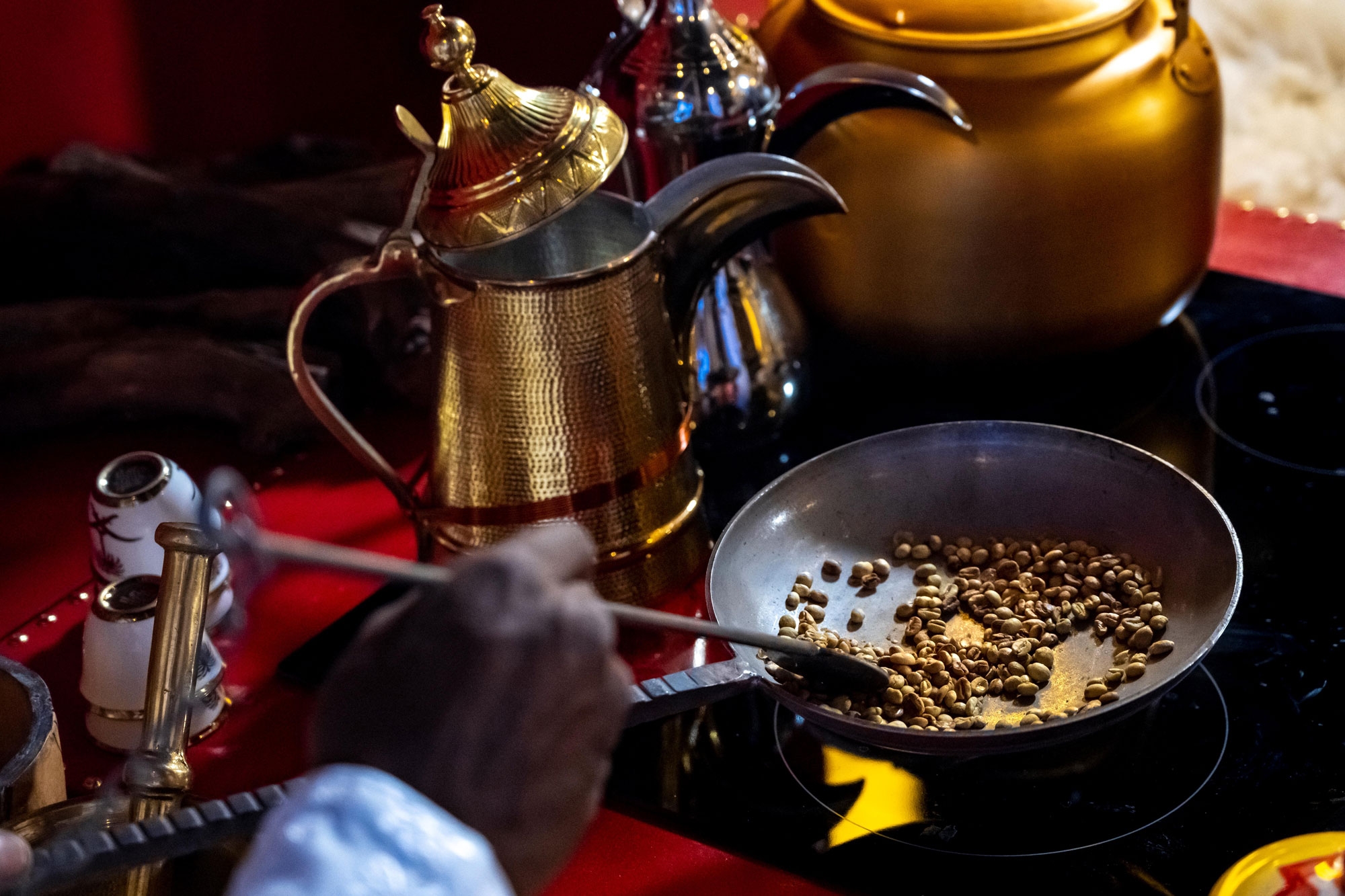
Preparing Saudi coffee
Saudi coffee ingredients
The two main ingredients commonly used in preparing coffee in the Kingdom are coffee beans (coffee) and cardamom. Later on, other types of beans and flavors were added, such as ginger, saffron, cloves, and mastic.
Preparing Saudi Coffee
The designation of Saudi coffee is used to refer to the beverage based on its preparation method and flavor, regardless of the type of beans used. The term Saudi coffee can be applied to a beverage made from coffee beans, husks, or almonds. Since the main component in Saudi coffee is typically coffee beans, the roasting process is the first step in preparing and brewing coffee. It determines the flavor, taste, and color of the coffee. The amount used in each preparation is called a "roast." The color of the roasted coffee beans tends to be golden in the center of the Kingdom. Cloves and saffron are added, and the color gradually become darker in the north of the Kingdom. In the south of the Kingdom, the color of the roasted beans tends to be lighter and rich in additives, including ground ginger, cinnamon, caraway, cloves, and saffron. Finally, the western region shares with the eastern region of the Kingdom a moderate color of roasted coffee beans, with the addition of saffron in the eastern region and scented musk in the western region.
Serving Saudi coffee
The customs of serving coffee in the Kingdom vary from one province to another, but it is commonly understood that only the householder, his son, or a close family relative should pour the coffee for the guests. The younger person is given precedence over the older one in serving the coffee. The person pouring the coffee typically remains standing until the guests finish drinking it, holding the Dallah (coffee pot) with the left hand and three or four cups in the right hand to pour them for the guests in succession. There is usually a distance of about three steps between the person pouring the coffee and the guests, and the person pouring the coffee approaches within two steps, leaning forward and extending the arm downward to reach the seated guest's hand. Common welcoming phrases like "Tafaddal" (here you are), "Sammi" (invoking the name of Allah), or "Taqahwa" (enjoy your coffee) are uttered during the process. The guest usually holds the cup with their right hand, between the index finger and the thumb. The first cup is often served to the householder to ensure its quality and to demonstrate that it is free from any harmful substance. Then, priority is given to the elders, the guests sitting at the head of the gathering, the parents if they are present, or the hospitality starts from right to left if the guests are family members or friends.
Factors affecting the quality of Saudi coffee
Several factors affect the quality of Saudi coffee, including, processing methods of the beans, roasting date where the fresher the roast, the better the coffee quality as it retains its flavor and characteristics, and storage method. It is preferable to store it away from air, moisture, and light.
The Kingdom’s efforts to support coffee production and present it as a cultural element
Saudi Coffee Company
The Saudi Coffee Company was established on May 15, 2022. This establishment aligns with the strategy of the Public Investment Fund, which aims to develop thirteen strategic sectors and empower promising sectors in the Kingdom, including the food and agriculture sector. The Saudi Coffee Company aims to support local coffee production and elevate it to international standards in the future. It seeks to play a leading role in enhancing efforts to develop sustainable agriculture in Jazan province in the south of the Kingdom, given its status as a key hub for the world-renowned Arabica coffee.
The Saudi Coffee Company also aspires to invest approximately SAR1.2 billion over the next ten years in the coffee sector in the Kingdom. This investment aims to contribute to increasing the production capacity of Saudi coffee from three hundred to 2,500 t annually. Additionally, the Saudi Coffee Company will focus on localizing knowledge and adopting the latest technologies in the fields of cultivation and production, roasting, marketing of coffee, and all related operations in the Kingdom. This involves establishing a specialized academy for coffee production in various provinces of the Kingdom. This academy will be responsible for training and qualifying individuals, offering a variety of programs tailored for skilled professionals, entrepreneurs, and Saudi farmers. The aim is to equip them with the knowledge and skills needed to establish their own projects and private farms, thereby enhancing the participation and contribution of local communities in benefiting from the opportunities provided by this sector.
Mdyaf program
It is a Saudi initiative directed towards roasters and cafes in the Kingdom, launched by the Ministry of Culture in 2022. It aims to celebrate Saudi coffee as a product intricately linked to Saudi culture and identity. It seeks to shed light on the cultural diversity of the Kingdom, demonstrated by the various ways Saudi coffee is served and prepared, while also highlighting Saudi Khawlani coffee as an authentic Saudi product.
The concept of the (Mdyaf) initiative revolves around gathering the roastery or cafe to accumulate points earned for meeting specific criteria to win either the Golden Dallah or the Silver Dallah. Each symbolizes specific benefits granted to the deserving cafe or roastery.
Year of Saudi Coffee 2022
The Saudi Coffee Year 2022 is an initiative launched by the Ministry of Culture in the Kingdom to celebrate the cultural value of Saudi coffee. It is recognized as an important element in local culture and an authentic Saudi heritage. It was announced on December 9, 2021, and it involves celebrating Saudi coffee through various initiatives, activities, and events throughout 2022.
The Year of Saudi Coffee 2022 initiative is part of the Quality of Life program, one of the Saudi Vision 2030 realization programs. It aims to enhance national identity and all associated cultural elements. The Ministry of Culture has allocated an online platform for the initiative, through which activities and campaigns are launched, and supportive ideas for the initiative are welcomed. This platform aims to encourage government entities, and local and international cafes to participate with innovative ideas to ensure the presence of Saudi coffee in their menus and products.
This initiative aims to emphasize the connection between coffee and its culture with the Saudi identity, stemming from the unique way the Saudi society interacts with it and its distinctive atmosphere, from cultivation to preparation and presentation. It also aims to highlight the authentic Saudi generosity and hospitality associated with Saudi coffee and its customs, showcasing the significant cultural diversity through the variety of methods in preparing and serving Saudi coffee.
Saudi coffee expert
The Ministry of Culture, in partnership with the Culinary Arts Commission, launched the 'Saudi Coffee Expert' project as part of the initiatives and projects for the Year of Saudi Coffee 2022. The project aims to promote the customs and traditions associated with preparing and brewing Saudi coffee, providing informative content about Saudi coffee in engaging ways. A traditional tent, designed with distinctive colors, is set up in hotels, where Saudi coffee experts welcome visitors, serve them coffee, and explain the various methods of preparation and presentation.
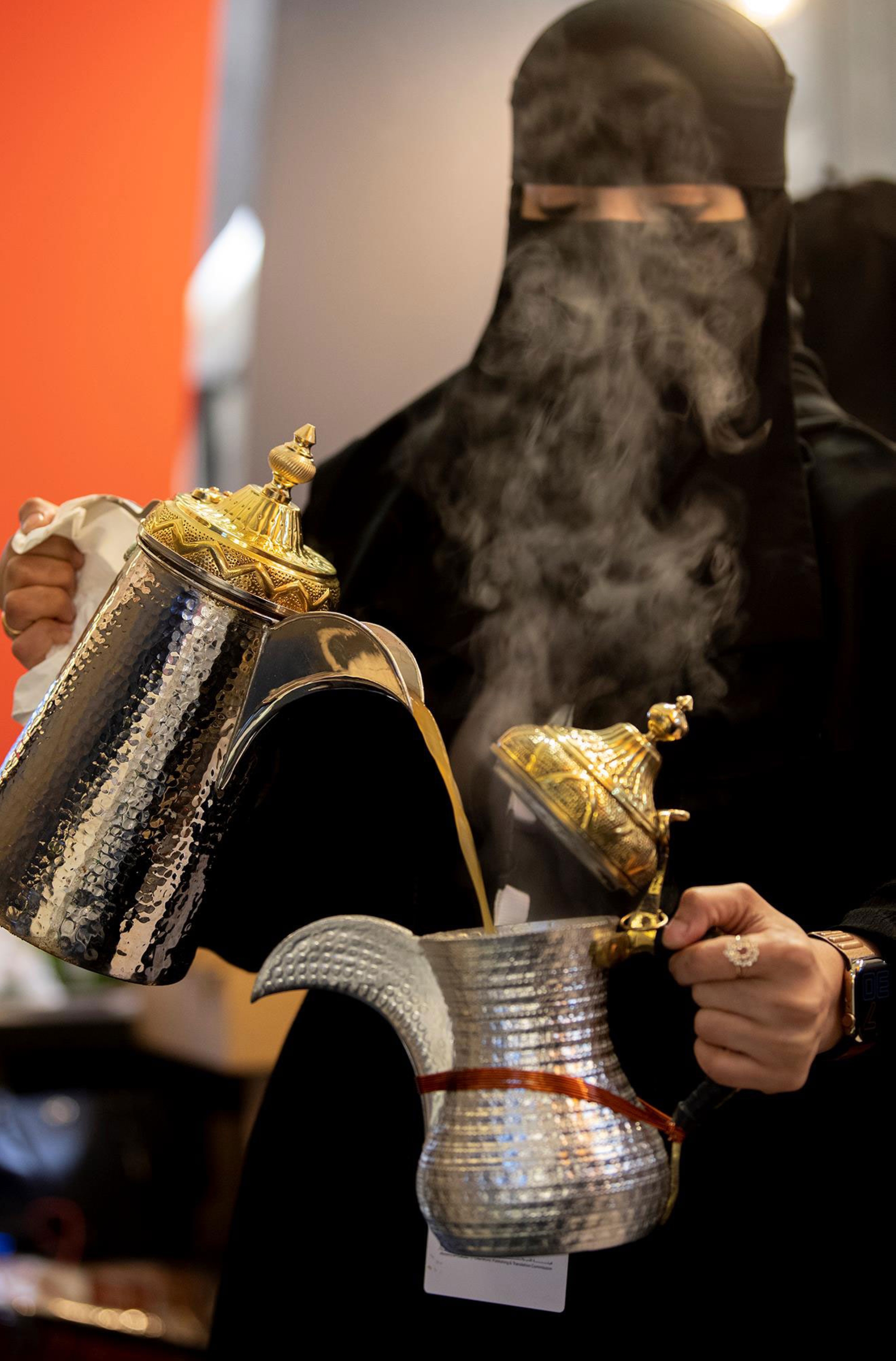
Saudi Coffee Exhibition
It is an exhibition organized by the Museum Commission in the Kingdom as part of the initiatives for the Year of Saudi Coffee 2022, launched by the Ministry of Culture. The exhibition took place from October 15 to December 31, 2022, at the Historical al-Masmak Palace museum in Riyadh City. It featured everything related to Saudi coffee, including its cultivation, roasting, ingredients, preparation, presentation, and the utensils associated with it. The exhibition was designed to guide visitors through five sections, starting with an introductory prelude explaining the concept of the exhibition and its general idea. It provided an overview of the topics visitors would encounter to prepare them for the qualitative content highlighting Saudi coffee. The five sections were named (al-Haif, al-Daif, al-Kaif, al-Saif, and al-Fares).
The first section, (al-Haif), was dedicated to the agricultural aspect. Here, visitors were introduced to the journey of coffee starting from the spatial design of agriculture, the stages of cultivation, and the heritage artifacts related to it. The section also showcased the agricultural community and the development of farming methods in the Kingdom. Additionally, it delved into the roasting process, its various degrees, durations, and the characteristics of each roast. The second section of the exhibition, (al-Daif), showcased the process of preparing Saudi coffee according to the cultural differences between the provinces of the Kingdom. It provided a live experience of the different methods of preparing Saudi coffee and the ingredients used. Additionally, it included an educational presentation on how to hold the coffee cup, the amount of coffee to be served, coffee management, and pouring techniques. The third section of the exhibition, al-Kaif, showcased the evolution stages of the coffee pot (Dallah), its types, artistic decorations, and the auxiliary tools used in coffee and Dallah making. It also highlighted the craftsmen involved in manufacturing them in different provinces of the Kingdom, along with the historical development of these crafts and the evolution of cup-making techniques. (Al-Saif) section of the exhibition delves into the influence of Saudi coffee on Saudi literature, examining its role in shaping both the cultural and artistic landscape and imagination. It emphasizes its symbolic significance in literary works, spanning poetry and prose. In the final section of the exhibition, (al-Fares), there is a narrative that examines the present state of Saudi coffee and offers insights into its future. This includes discussions on its production, manufacturing, and consumption methods, as well as the modernization and changes within the coffee market. It also explores the evolution of Saudi coffee preparation, introducing distilled Saudi coffee, cold brews, and instant coffee. Additionally, contemporary displays illustrate the transition of coffee consumption from communal sharing with small cups to individualized servings in various sizes, among other related developments.
Coffee Development City
The Coffee Development City is one of the newly established projects by the Ministry of Environment, Water, and Agriculture in al-Bahah Province. It is the first of its kind in the Kingdom, covering an area of approximately 1,600,000 m². The city includes a model farm, a modern nursery for seedlings, as well as an integrated coffee factory that encompasses sorting, processing, roasting, and packaging facilities. Additionally, it features a business center, a training center, buildings for security and housing, and offices for administration and services.
The project aims to encourage investment in local coffee cultivation by developing local and global production, manufacturing, and marketing of coffee. It offers investment opportunities for coffee cultivation in suitable agricultural areas in the Kingdom, creating agricultural job opportunities. Additionally, the project aims to plant approximately three hundred thousand coffee trees.
Saudi Aramco initiative
The initiative aims to establish the Saudi Coffee Center in Jazan Province, aiming to develop the current nursery of the Jazan Mountainous Areas Development and Reconstruction Authority. It seeks to enhance the use of the latest technologies in producing coffee seedlings, increasing production capacity to three hundred thousand seedlings annually through a quality enhancement laboratory, providing agricultural guidance to coffee farmers, and establishing a laboratory equipped with machines for drying, peeling, sorting, and packaging coffee based on scientific principles. The establishment of the Saudi Coffee Center is part of a series of programs launched by Saudi Aramco to support small and medium-sized projects, including a program launched in 2016 to train coffee farmers on the latest sustainable farming methods for coffee production in Jazan Province and to improve production and marketing methods for coffee, which represent a part of the Saudi economy and heritage. Additionally, the company has constructed a development project to encourage the cultivation of Khawlani coffee specifically. Since the beginning of Saudi Aramco's programs, two hundred thousand seedlings have been planted, and 975 farmers have been supported, with a production capacity exceeding eight hundred t of coffee by 2021. The support included the maintenance of a number of farms and the installation of new irrigation systems.
Khawlani Coffee Festival
The festival is a tourism event held in al-Da'ir Governorate of Bani Malik, located east of Jazan Province in the southwest of the Kingdom. It focuses on showcasing the coffee crops grown in most of the mountainous areas of the province, as well as in adjacent areas, notably Aseer and al-Bahah. The festival aims to revive and encourage coffee cultivation in the highlands of the southern region of the Kingdom and introduce the importance of coffee trees and crops.
Coffee Symphony
It is an online (virtual) competition launched by the Ministry of Culture to highlight the deep societal meanings of Saudi coffee, which reflect the authenticity and diversity of Saudi culture. The competition aims to foster a spirit of creativity by encouraging participants to create musical compositions inspired by the sounds of coffee preparation at its various stages. It seeks to showcase the depth and authenticity of Saudi culture and take pride in its traditions of generosity and hospitality, while also elevating engagement with Saudi coffee campaigns in a creative manner.
The competition includes a set of sounds associated with the rituals of preparing and serving Saudi coffee, such as the sounds of coffee cups, grinding coffee beans, stirring in the coffee pot, or the welcoming phrases, whether feminine or masculine, often accompanying the reception of guests and the serving of coffee to them.
Saudi and international coffee
Saudi Coffee Exhibition and 2022 World Cup fans
The Saudi Coffee Exhibition participated in 'al-Ahsa Oasis' festival, as part of the activities aimed at capturing the attention of visitors to al-Ahsa and supporters of the 2022 FIFA World Cup in Qatar. The exhibition, which took place at the House of Allegiance in the historic city of al-Hufuf, continued until December 20, 2022. It showcased the Saudi community's interest in coffee and their dedication to the details of roasting, preparing, and serving it to guests. The exhibition encompassed the various cultures within the Saudi community across cities and provinces of the Kingdom in their methods of preparing Saudi coffee and the tools used in its making, and also showcased different types of coffee beans.
Saudi Pavilion at Expo 2020 Dubai
The Saudi Pavilion at Expo 2020 Dubai organized the (Saudi Coffee Week) event to introduce Saudi coffee and highlight its value as one of the main elements in Saudi culture. The event organized by the Saudi Pavilion at the expo included workshops on the journey of Saudi coffee from cultivation to presentation. It also featured an introduction to the main methods of preparing Saudi coffee, highlighting regional variations within the Kingdom and introducing the symbolism and cultural value of Saudi coffee.
The promotional campaign for Saudi coffee in four international cities
It is a campaign organized by the Ministry of Culture as part of the events of the Year of Saudi Coffee. The campaign selected four international cities: Rome, Paris, London, and New York, to introduce the history and cultural value of Saudi coffee. It also aimed to express the extent of its connection to national identity as a symbol of generosity and hospitality, and to spread these cultural connotations of coffee worldwide.
Related quizzes
Related articles

